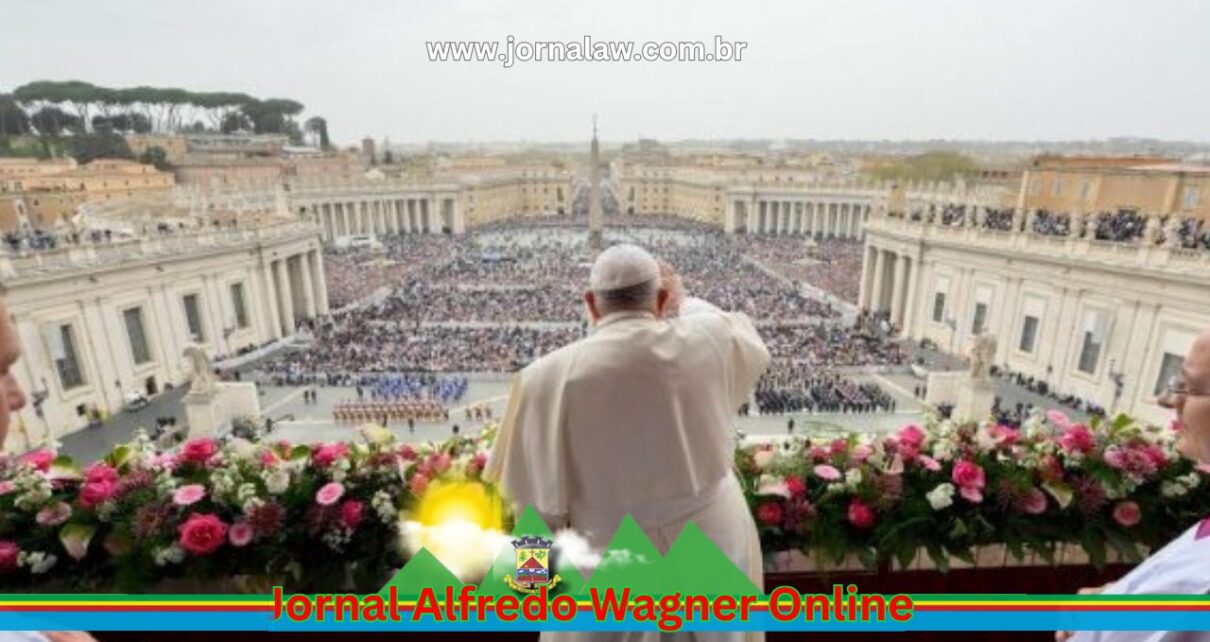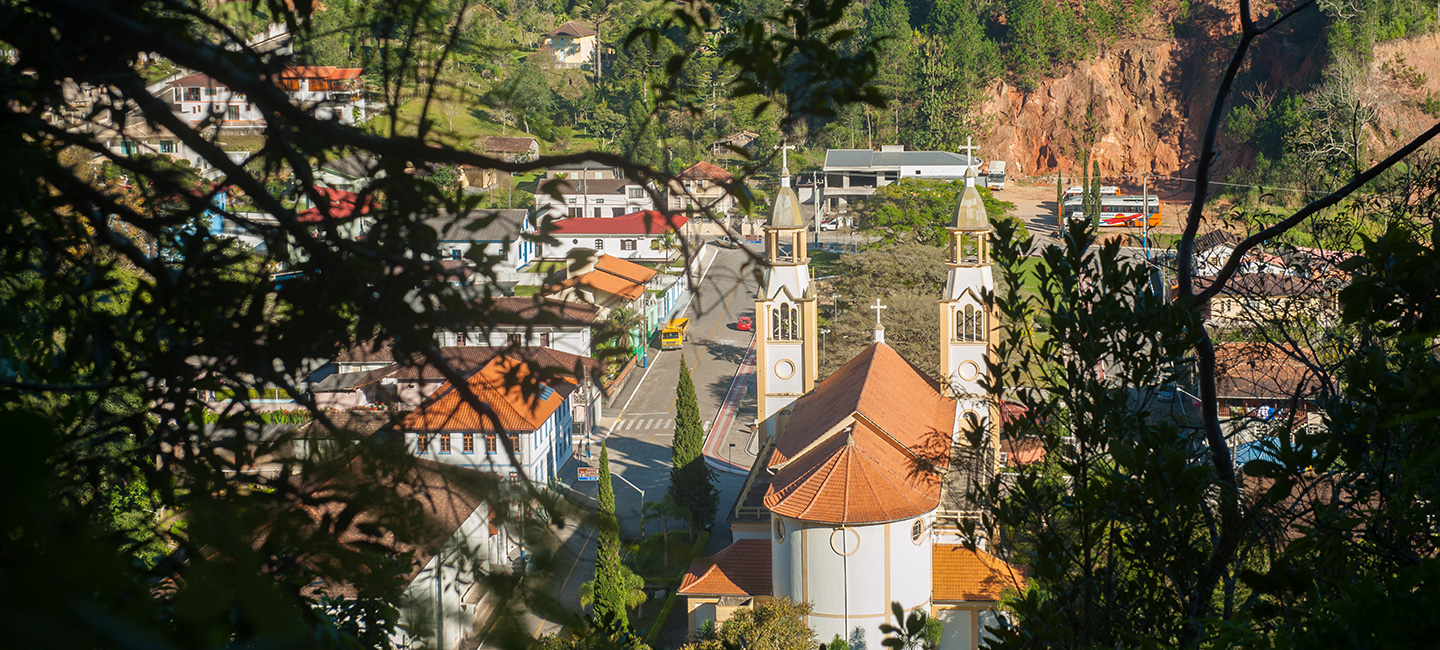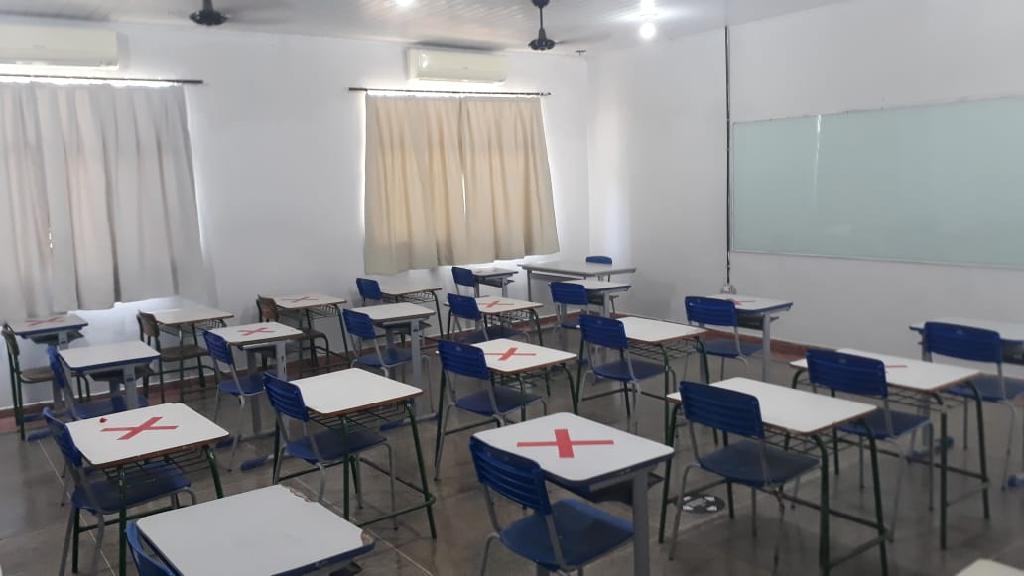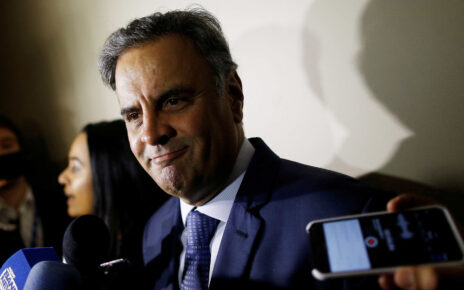Mauro Demarchi, editor of the Jornal Alfredo Wagner
This morning, the world woke up in mourning with the news of the death of Pope Francis. At 88 years old, the Argentine pontiff leaves the Chair of Peter with a legacy that will be debated for decades, if not centuries. His death ends one of the most remarkable pontificates in the recent history of the Catholic Church — and possibly one of the most challenging since the Second Vatican Council.
A Pope from the End of the World
When Cardinal Jorge Mario Bergoglio was presented to the world as the new Pope on March 13, 2013, many were surprised. Not only because of the unprecedented resignation of his predecessor, Benedict XVI, but because he was the first Latin American pope, the first Jesuit and the first to adopt the name Francis — inspired by Saint Francis of Assisi, a symbol of humility and poverty.
This choice of name was a harbinger of what was to come: a pontificate centered on mercy, simplicity, the option for the poor and criticism of clericalism.
The Church on the Move
“I prefer a Church that is bruised, wounded and muddy because it has been out on the streets, rather than a Church that is sick from being confined and from clinging to its own comfort zone.”
— Evangelii Gaudium , 49
Pope Francis has placed the phrase “Church that goes forth” at the center of his teaching. In his first apostolic exhortation, Evangelii Gaudium (2013), he called Catholics to leave their comfort zones and reach out to the peripheries—both geographical and existential. This was not just a metaphor: during his pontificate, he has visited refugee camps, washed the feet of Muslim immigrants, eaten lunch with the homeless, and personally called people in need.
Apostolic Journeys: a geopolitics of hope
“The name of God is mercy.”
Francis was a traveling pope — not as much as John Paul II, but with very symbolic choices. He visited countries forgotten by international diplomacy: South Sudan, the Central African Republic, Myanmar, Mongolia. He visited Cuba, the United States, Iraq, and the United Arab Emirates — being the first pope to set foot on the Arabian Peninsula. These visits were not just pastoral gestures, but geopolitical acts, proposing inter-religious dialogue, peace, and reconciliation.
Reforms and resilience
“How I would like a poor Church for the poor!”
Francis inherited a Curia in crisis, marked by financial and moral scandals. One of his first major initiatives was the reform of the Vatican administration, especially the Institute for the Works of Religion (the so-called “Vatican Bank”). With the constitution Praedicate Evangelium (2022), he profoundly reformed the Roman Curia, prioritizing the missionary spirit over bureaucracy.
He also created the Pontifical Commission for the Protection of Minors in response to the sexual abuse scandals — although he has been heavily criticized for slow progress and for, in some cases, defending accused bishops, as in the case of Chile.
Doctrinal and controversial definitions
“Clericalism is a plague in the Church. It is a form of spiritual worldliness that distances people from God.”
Francis avoided grand dogmatic definitions, preferring a pastoral and dialogical style. Even so, he promoted significant advances:
- With Amoris Laetitia (2016), he opened the possibility of reintegrating divorced and remarried people into communion, provided that this is done in discernment with a priest.
- With the Motu Proprio Traditionis Custodes (2021), he restricted the use of the Tridentine Mass, provoking criticism from traditionalist sectors.
- In 2023, it authorized the blessing of couples in an irregular situation and same-sex couples — as long as they are not considered equivalent to Christian marriage. A pastoral gesture interpreted by many as revolutionary.
“We are all brothers.”
— Fratelli Tutti , 8
He has also published highly influential encyclicals, such as Laudato Si’ (2015), on integral ecology, and Fratelli Tutti (2020), on universal fraternity. Both have shaped his vision of a more just and sustainable world.
“Everything is connected, as if we were one body.”
— Laudato Si’ , 91
A Pope of contrasts
Francis has been loved and criticized in equal measure. Admired by progressives for his focus on the poor, migrants and social justice, he has been shunned by some conservatives, who have accused him of doctrinal ambiguity and moral relativism.
His direct, sometimes informal and improvised style contrasted with the papal solemnity of other times. He called priests “clerks,” seminarians “little princes,” and the faithful not to live like “sacristy Christians.” His daily homilies at Santa Marta became a constant source of reflection and debate.
What’s left for the next Pope?
Francis has not named his successor, but he has profoundly shaped the college of cardinals who will do so. Of the 137 current cardinal electors, 99 were created by him. That means the next papal choice will reflect, at least in part, his ecclesial vision.
“Truth does not change. It is our understanding of it that changes. It grows with time.”
For the next pontiff, Francis leaves:
- A Church more focused on the poor and marginalized.
- A less monarchical and more pastoral pontificate.
- A reformed but still resistant curia.
- Open challenges in the areas of sexual morality, abuse and dialogue with modernity.
- A continuous appeal to fraternity and integral ecology as parts of Christian witness in the world.
A memory that will divide and unite
“Faith is not a relic of the past. Jesus is not a character in history. He is alive!”
Pope Francis will not be remembered for his orthodoxy or academicism. He will be remembered as the Pope who preferred gestures to speeches, who broke protocols, who disturbed the comfortable and consoled the wounded.
For some, a beacon of mercy. For others, a sign of confusion. But for everyone, a figure who left no one indifferent.
His legacy will be debated, loved, criticized. But, as he himself said, “time is superior to space .” And time will be the final judge of his work.



